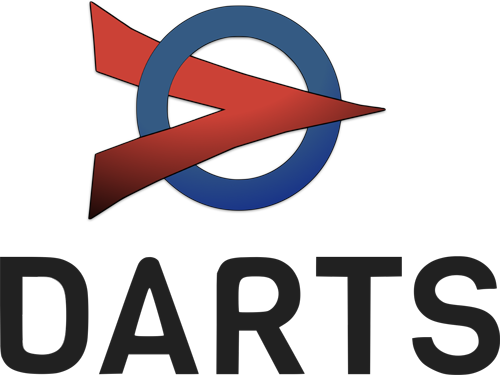Products
DARTS srl currently offers the following services and products of interest to industries, research and therapy centres:
- High precision and ultra-fast calculation of the dose absorbed by materials exposed to ionizing radiation;
- Calculations of physical quantities of interest for applications in the radiation protection sector;
- Estimation of particle flows involved in the operation of medical machines that use ionizing radiation;
- Development of innovative materials of interest for medical diagnostics and industrial imaging.
These products and services are detailed below.
Other areas of interest for DARTS and future research and development action are:
- The commercialization of patents.
- Improvement and marketing of some innovative (hardware) devices for medical applications such as monitoring treatments with carbon ions
- Innovative technologies and solutions for single photon emission computed tomography.
Rapid dose calculation
DARTS srl’s flagship product is the rapid dose calculation service for quality control in proton treatments.
The software developed by DARTS members allows for elaborate and precise Monte Carlo simulations to be carried out in extremely short times and with results comparable to those obtainable using other commercial or open-source software and tools such as FLUKA and Geant4.
The software, which achieves maximum precision in calculating the absorbed dose by exploiting the power of the GPU (Graphics Processing Unit) to reduce calculation times, was developed at the Department of Basic and Applied Sciences for Engineering at Sapienza University, with the goal of balancing accuracy and calculation time.
The advent of GPUs has made it possible to drastically reduce dose calculation times compared to codes based on standard CPU hardware. The ability to evaluate a complete radiation treatment plan in minutes, rather than hours, and with extreme accuracy opens up many time-critical clinical applications. This software is a fast Monte Carlo (MC) platform equipped with GPU hardware and capable of simulating the transport (propagation) of particles (external radiation) in heterogeneous media. The management of the interaction of proton beams with matter implemented within the software is already in a mature phase, reaching an accuracy that meets clinical requirements and has allowed its use as a tool for calculating the dose for quality control in the centers of Maastricht and Krakow and as a research tool in several clinical trials and research centers in Europe including CNAO (Pavia), APSS (Trento), MAASTRO (Holland) and MedAustron (Vienna).
Recently the software has been further improved by DARTS members and the possibility of studying the interactions of carbon ion, electron and photon beams with matter for applications, for example, in radiotherapy has also been introduced.
The services offered by DARTS are also of particular interest in the context of IORT (Intraoperative Radio Therapy) in which it is still impossible to provide the accurate dosimetric report required by law within the timescales required for the treatment of patients: the software developed by DARTS which allows you to do so in a detailed and rapid way is therefore of great interest for the industries operating in the sector.
Novel scintillator materials
Scintillators are primarily used in physics as detectors for both charged and neutral particles. They are employed for particle characterization, counting, measuring time of flight (velocity), and defining their energy loss. Applications extend across various life science fields. The combination of scintillators with photodetectors is widely used in handheld devices for remote measurement, such as in detecting and measuring radioactivity and monitoring nuclear material, in medical device manufacturing, and in the petroleum industry as gamma-ray detectors.
A scintillator is a material that exhibits scintillation (the property of luminescence) when excited by ionizing radiation. Luminescent materials absorb energy from particles and then emit light. A plastic scintillator consists of a solution of organic scintillating material dissolved in a solvent, which is subsequently polymerized to form a solid solution. Organic scintillators are highly flexible in terms of manipulation, and their relatively low cost makes them particularly useful when large volumes of active material are required.
Our research team has developed a series of new organic scintillators characterized by faster light response than those currently available on the market. Moreover, thanks to the high solubility properties of our samples, their versatility can be further enhanced by solubilizing them in resins used by 3D printers to create samples of various shapes and sizes.
Other Services
The skills and solutions available in DARTS also concern:
- The creation of an innovative SPECT (Single Photon Emission Computed Tomography or single photon emission tomography, medical imaging technique)
- The development of glittering crystals with high temporal resolution
- The development of a compact detector for monitoring carbon ion treatments and for monitoring neutrons in external beam radiotherapy (EBRT) treatments
- The development of software and radiation detectors (e.g.: innovative radiation detectors for medical imaging applications, compact accelerator machines).
Head Office
Via A. Scarpa 16, c/o Dipartimento di Scienze di Base e Applicate per l’Ingegneria, 00161 Roma RM
Administrative seat
Via Giovanni Paisiello 15 Cap 00198 C/O Sarti Stoduto e associati Roma RM
Please, contact us by filling the form below

All rights reserved - dartsroma.com @2023 - Read our privacy policy and cookie policy
